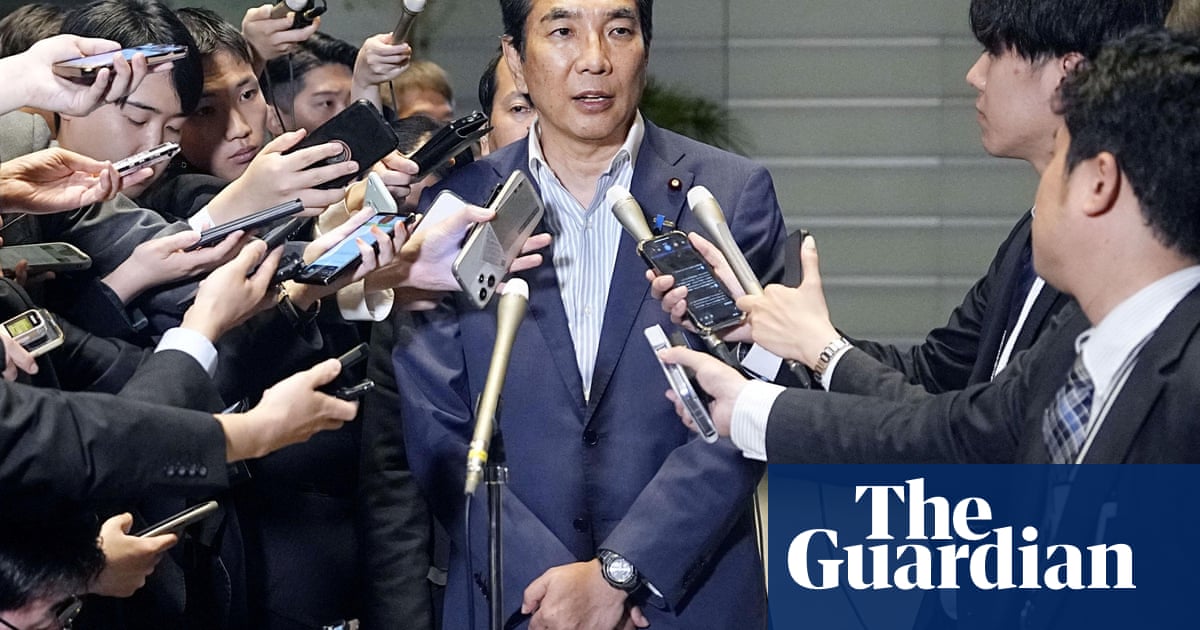Japan’s agriculture minister has resigned after saying he never buys rice because he gets it free, a remark that drew public fury in a country facing soaring food prices.
Taku Etō’s resignation has added to pressure on the prime minister,Shigeru Ishiba, whose failure to rein in soaring rice prices and address a widercost of living crisishas angered voters ahead of upper house elections in July.
“Just now I submitted my resignation to prime minister Ishiba,” Etō told reporters at the prime minister’s office.
Etō had faced calls for his resignation after claiming that he never had to buy rice, relying instead on gifts from supporters.
Etō had initially sympathised with the “hardship” felt by consumers after the governmentreleased about 300,000 tons of ricefrom emergency stockpiles earlier this year in the hope of bringing down prices. But speaking at a fundraiser last weekend, Etō said he had “never bought rice myself because my supporters donate so much to me that I can practically sell it”.
Etō will reportedly be replaced by Shinjirō Koizumi, a former environment minister whoran unsuccessfullyagainst Ishiba for the Liberal Democratic party (LDP) leadership last autumn.
Etō’s comment incensed consumers, who are having to pay nearly double for a bag of rice compared with a year ago, according to figures published in April.
“I asked myself whether it is appropriate for me to stay at the helm [of the agriculture ministry] at a critical time for rice prices, and I concluded that it is not,” Etō added, according to the Kyodo news agency.
“Once again, I apologise to people for making extremely inappropriate comments as minister when they are struggling with surging rice prices.”
Japan’sriceshortfall has been blamed on several factors, including poor harvests due to hot weather in 2023 and panic-buying prompted by a “megaquake” warning in 2024. Wholesalers and distributors are also thought to be hoarding rice stocks in anticipation of further shortages.
Ishiba had earlier apologised for Etō’s remarks.
The ongoing rice crisis and rising household food and energy bills havedented the popularityof Ishiba’s government, weeks before it faces voters in upper house elections that could determine his future as prime minister.
In a recent Kyodo survey, 87% of respondents were dissatisfied with the government’s handling of the rice prices, while approval ratings for Ishiba’s cabinet have sunk to their lowest since he took office last October.
The average price of rice sold at supermarkets in the week to 11 May reached a record ¥4,268 yen ($29) for 5kg, up from ¥4,214 the previous week and around double the price of a year ago.
In April, Japanimported rice from South Koreafor the first time in a quarter of a century in an attempt to address growing consumer anger.
Junya Ogawa, secretary general of the main opposition Constitutional Democratic party, described Etō’s comments as “extremely inappropriate, out of touch and intolerable”.
Etō conceded that his remarks had angered his wife. “She told me that she does buy rice when the donated rice runs out,” he said. “It’s not like our family is living entirely off of rice given to us as gifts.”
